When to Visit Cameroon
Cameroon, often referred to as the "Africa in Miniature," is a hidden gem in Central Africa that offers a rich tapestry of experiences. From its stunning landscapes and diverse wildlife to its vibrant culture and warm hospitality, Cameroon is a destination that has something for every traveler.
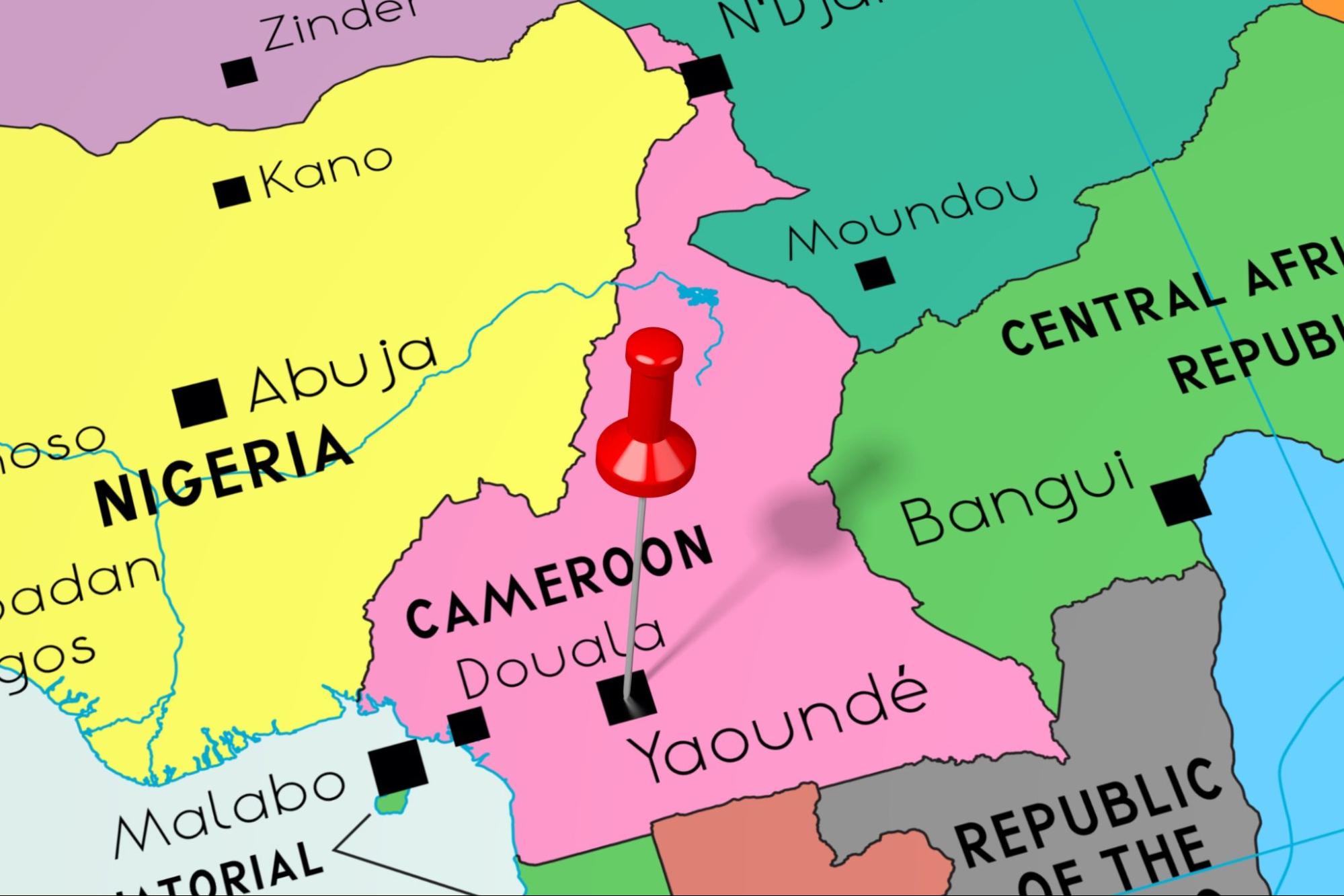
To make the most of your journey to this captivating country, it's crucial to understand when to visit based on various factors such as weather, wildlife, and cultural events.
Understanding Cameroon's Diverse Geography
Before delving into the best times to visit Cameroon, it's essential to grasp the country's diverse geography and climate. Cameroon's landscape is a masterpiece of nature, featuring everything from lush rainforests to arid savannahs and picturesque coastlines. This geographical diversity is mirrored in the country's climate, which can be broadly divided into three regions: the North, the South-Central Plateau, and the Coast.
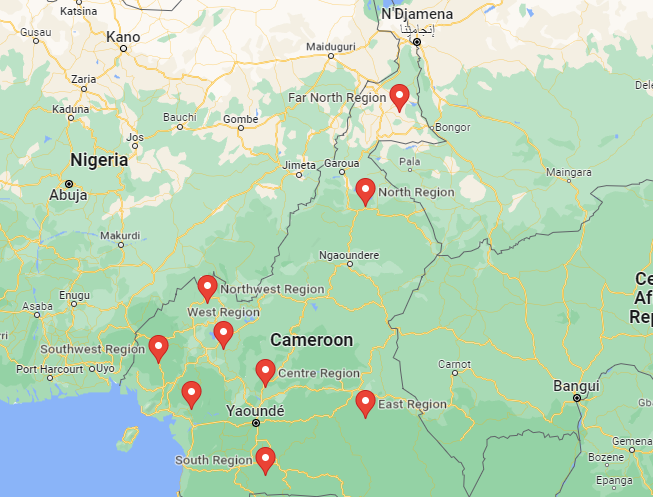
Coastal Region:
- Location: The coastal region stretches along the Gulf of Guinea in the south.
- Geography: This area is characterized by a picturesque coastline, beautiful sandy beaches, and low-lying plains. It features mangrove swamps, estuaries, and dense rainforests that extend into the Atlantic Ocean.
- Climate: The coastal region experiences a hot and humid equatorial climate. It is one of the wettest areas in Cameroon due to its proximity to the ocean.
- Key Features: The coast is known for its lush vegetation, unique wildlife, and vibrant fishing communities. Limbe and Douala are major cities in this region, serving as gateways for international travelers.
South-Central Plateau:
- Location: The south-central plateau occupies the central part of Cameroon, extending from the west coast to the eastern border.
- Geography: This region is characterized by elevated plateaus, rolling hills, and deep valleys. It is covered in part by dense equatorial rainforests, which are interspersed with savannah grasslands.
- Climate: The climate in this region is more moderate compared to the coast. It experiences a tropical wet and dry climate. The altitude plays a significant role in temperature variations.
- Key Features: The plateau region is rich in biodiversity and features numerous national parks and wildlife reserves. The terrain is ideal for activities such as hiking, bird-watching, and wildlife safaris.
Northern Region:
- Location: The northern region encompasses the area north of the Adamawa Plateau, extending to the borders with Chad and Nigeria.
- Geography: This is a vast expanse of semi-arid plains, with scattered rocky outcrops and acacia trees. It gradually transitions into the Sahel region further north.
- Climate: The northern region experiences a hot and arid climate. It has distinct wet and dry seasons, with very low annual precipitation.
- Key Features: The northern region is known for its unique landscapes, including the Mandara Mountains and the Waza National Park. It's also a cultural melting pot with diverse ethnic groups.
Western Highlands:
- Location: The western highlands are located along the border with Nigeria and extend into the Central African Highlands.
- Geography: This region is characterized by rugged terrain, volcanic peaks, and fertile valleys. It is part of the Cameroon Line, a chain of volcanoes.
- Climate: The climate varies based on altitude. Higher elevations experience a cooler and more temperate climate, while lower areas have a tropical climate.
- Key Features: The western highlands are famous for their volcanic lakes, including Lake Nyos and Lake Oku. The region is also home to some of Cameroon's highest peaks, such as Mount Cameroon.
Eastern Region:
- Location: The eastern region borders the Central African Republic and the Republic of Congo.
- Geography: It consists of dense tropical rainforests, rolling hills, and river valleys. The Congo Basin rainforest extends into this area.
- Climate: The climate is typically hot and humid, with high rainfall throughout the year.
- Key Features: The eastern region is a biodiversity hotspot and is home to various wildlife, including gorillas and chimpanzees. It offers opportunities for eco-tourism and exploration of pristine wilderness.
Understanding these regional climate variations is essential for planning your visit to Cameroon, as the best time to explore different parts of the country may vary.
Best Time for Wildlife Enthusiasts
Cameroon boasts a range of national parks and game reserves that provide excellent opportunities for wildlife enthusiasts. The best time to visit these parks largely depends on the animals you want to see and their behavior.
Waza National Park
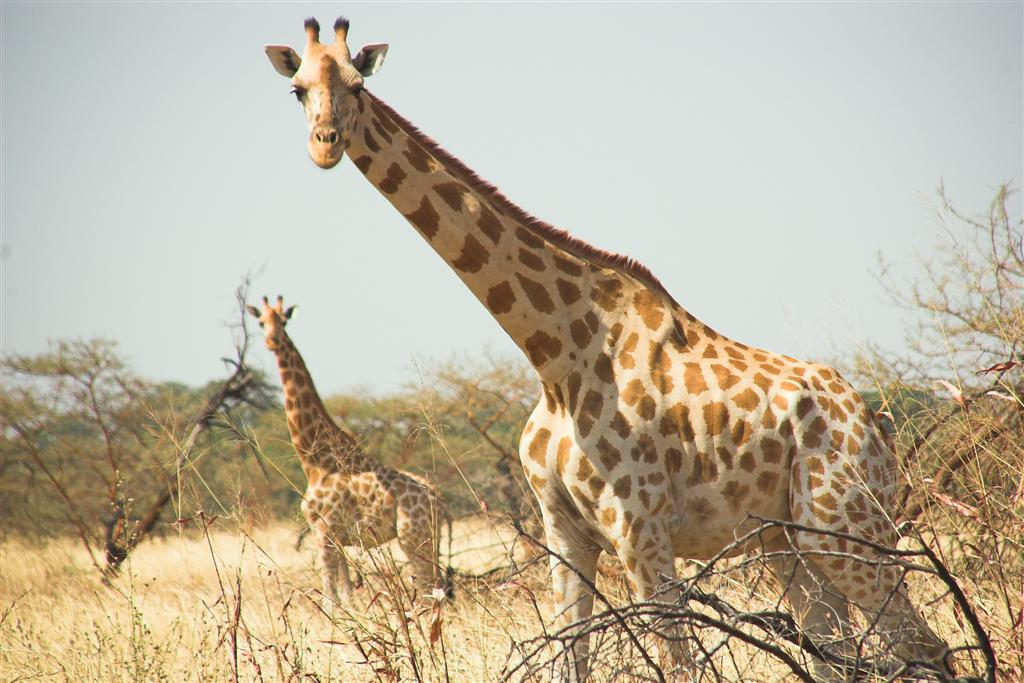
Best Time to Visit: December to March
- Why: During these months, Cameroon experiences its dry season, which is ideal for wildlife enthusiasts. The wildlife in Waza National Park, one of the country's most renowned reserves, congregates around waterholes and other water sources. The reasons for this congregation are to escape the heat, quench their thirst, and find shade under the few trees that dot the park. This results in exceptional wildlife sightings as animals are drawn to these vital resources.
- What to Expect: When you visit Waza National Park during this period, you'll have the opportunity to witness a wide array of animals. These may include giraffes, elephants, hyenas, gazelles, and, if you're particularly fortunate, the majestic lion. The dry season offers excellent visibility and a more comfortable climate for exploration.
- Recommended Activities: Enjoy exciting nature walks with experienced trackers, cool off in beautiful waterfalls, and embark on leisurely safari drives to observe and photograph the remarkable wildlife.
Bénoué National Park
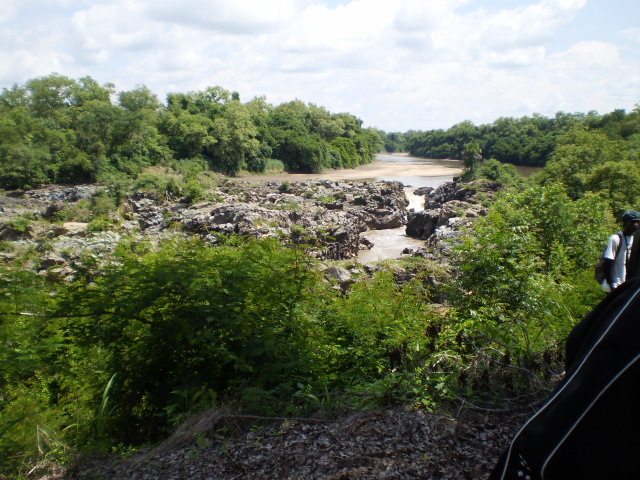
Best Time to Visit: November to June
- Why: Located in North-Eastern Cameroon, Bénoué National Park is another wildlife enthusiast's haven. The period between November and June is the best time to explore this UNESCO-designated Biosphere Reserve. During these months, the park experiences a drier climate, making wildlife viewing more accessible and rewarding.
- What to Expect: Bénoué National Park is renowned for its population of around 30 endangered West African lions. This is a great place to encounter these magnificent creatures in their natural habitat. Additionally, you can spot giraffes, cheetahs, eland, zebras, red river hogs, and an astonishing variety of bird species, making it a must-visit for birdwatchers.
- Recommended Activities: Embark on guided safaris to explore the park's diverse landscapes and observe its rich wildlife. The park offers an excellent opportunity to immerse yourself in the natural beauty of Cameroon.
Korup National Park
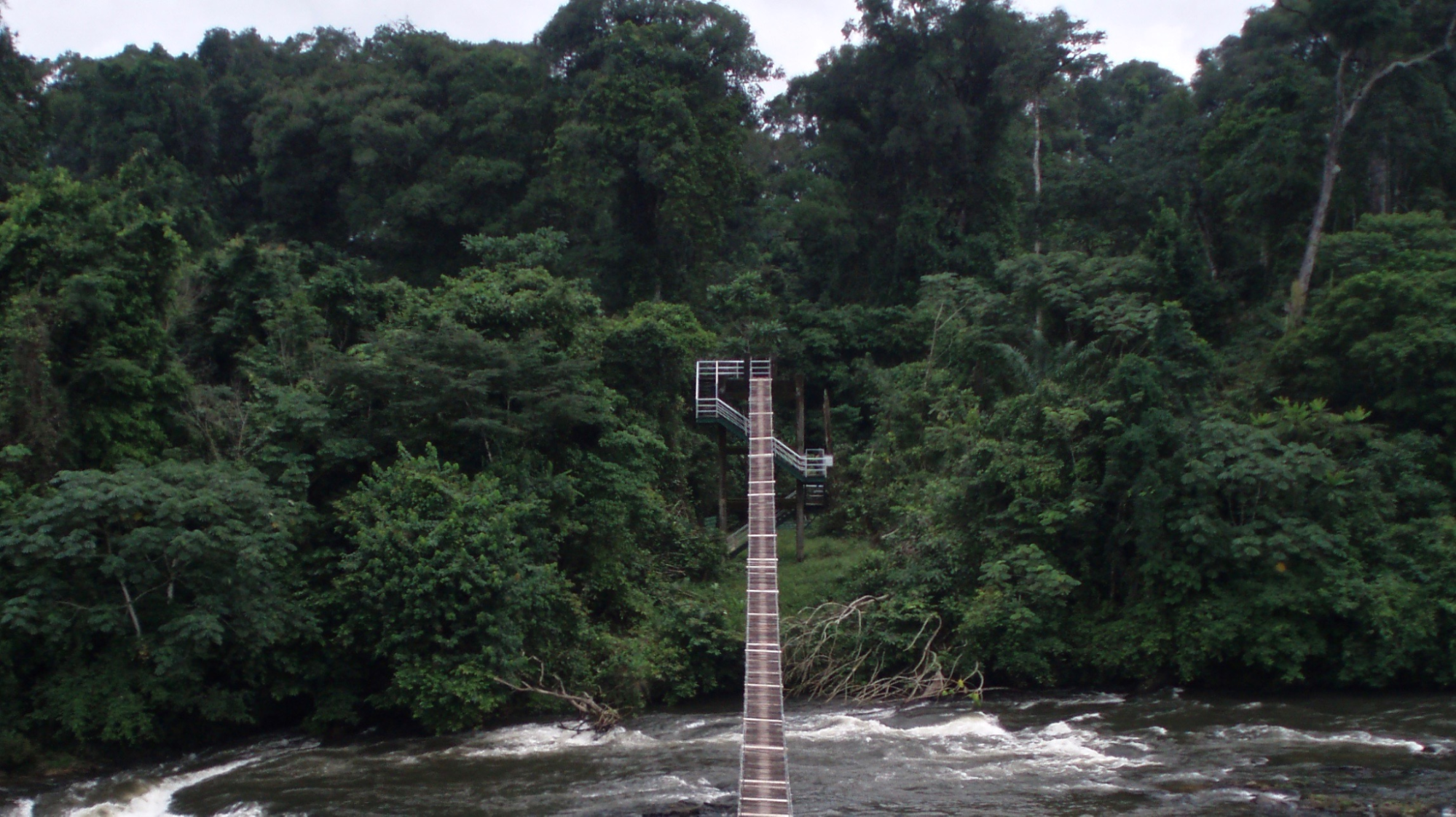
Best Time to Visit: December to February
- Why: Korup National Park, known for having one of the oldest and most biologically diverse tropical rainforests in Africa, is a year-round attraction. However, for wildlife enthusiasts, the months of December to February provide the most comfortable and enjoyable conditions for exploration.
- What to Expect: The park is a hotspot for bird-watching, with an abundance of avian species. Additionally, Korup National Park offers excellent primate viewing, with a total of 14 different primate species inhabiting the area. The lush forest is also home to leopards, duikers, buffalos, and elephants.
- Recommended Activities: Explore an extensive network of trails that allows visitors to reach every corner of the park. An exhilarating highlight of your visit will be crossing the Mana suspension bridge, a thrilling experience that will get your heart racing. Engage in hikes, nature walks, boat trips, and safari drives to uncover the park's extraordinary terrain and wildlife.
Ndzanga Sangha National Park
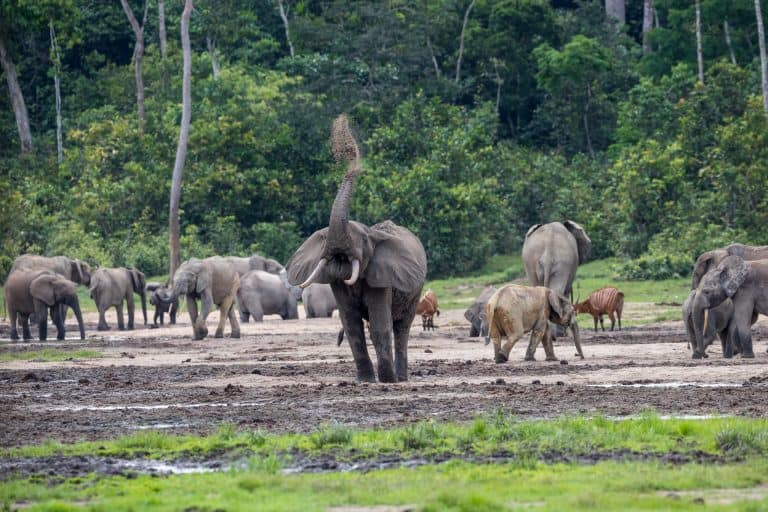
Best Time to Visit: November to March
- Why: Ndzanga Sangha National Park, situated in the southwest of Cameroon, is another gem for wildlife enthusiasts. The period from November to March offers the most favorable climate for exploring this unique and diverse ecosystem.
- What to Expect: In Ndzanga Sangha National Park, you can encounter a variety of wildlife, from forest elephants and lowland gorillas to forest buffalos and various primate species. The park is renowned for its pristine rainforests and abundant biodiversity, providing endless opportunities for wildlife sightings and photography.
- Recommended Activities: Engage in guided tours and wildlife tracking activities to get up close and personal with the remarkable fauna of the park. The lush rainforests and tranquil rivers make this a memorable destination for those seeking an authentic wildlife experience.
Climate Across the Months
To better plan your trip, here's a month-by-month breakdown of the climate in Cameroon:
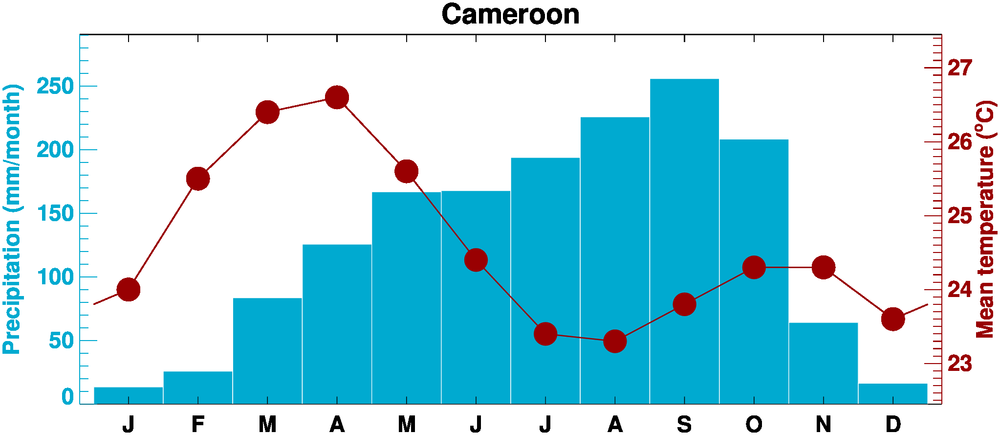
Dry Season (December to March)
- December to February: These months are perfect for safaris, offering dry and moderately warm weather. December also sees the Ngondo Festival celebrated along the Wouri River, providing cultural insights and festive experiences.
- March: While March can be hot, it's an excellent time to visit wildlife reserves such as Waza, Korup, Bénoué, Bouba Njda, and Faro before the rainy season commences in April. However, the grasslands might experience some light rainfall in March.
Wet Season (April to November)
- April to November: This is the wet season, characterized by varying levels of rainfall across Cameroon. May is a busy month, with celebrations such as Labour Day, Ascension Day, and National Day. These celebrations provide an opportunity to immerse yourself in the local culture.
- November: As November unfolds, the clouds begin to disperse, the skies clear, and the vegetation starts to dry, paving the way for Cameroon's long dry season from December to March.
It's important to note that regional variations exist, and climate conditions may fluctuate. Therefore, consider your interests and the activities you'd like to undertake when planning your trip to Cameroon.
Cultural Festivals and Events
In addition to wildlife and climate considerations, you may want to align your visit with some of Cameroon's vibrant cultural festivals and events:
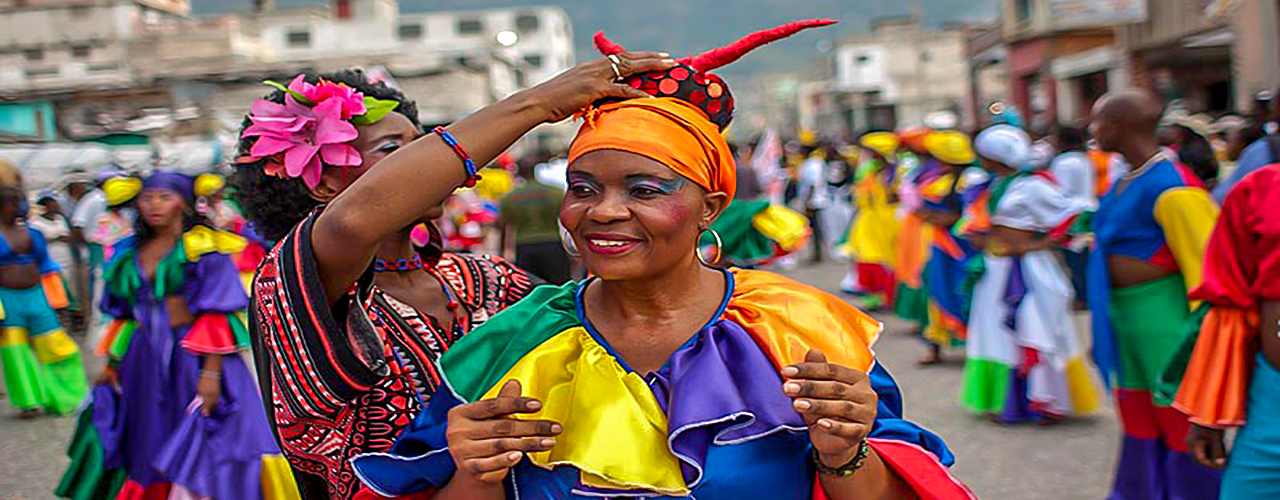
- Ngondo Festival (December): Held on the banks of the Wouri River in Douala, the Ngondo Festival showcases traditional ceremonies, dances, and cultural exhibitions. It's a unique opportunity to immerse yourself in Cameroonian culture.
- Mount Cameroon Race of Hope (February): Athletes from around the world gather in Buea to participate in this annual climbing competition up Mount Cameroon. It's a thrilling event that combines adventure with stunning scenery.
- Eid al-Fitr (June): If you visit in June, you can witness the celebration of Eid al-Fitr, a significant Islamic festival, especially in the northern regions of Cameroon.
- Cameroon National Day (May 20th): On this day, Cameroon hosts events and parades across the country to celebrate its rich heritage and cultural diversity. It's a great time to experience the national pride and festive spirit.
Tips for Safe and Enjoyable Travel
While planning your trip to Cameroon, keep these safety and travel tips in mind:
- Book with Reputable Safari Companies: Ensure your trip includes transportation, accommodation, activities, and knowledgeable guides. This will make your journey more organized and enjoyable.
- Vaccinations: Mandatory vaccinations for visiting Cameroon include yellow fever, COVID-19, hepatitis A, typhoid, and polio. Additionally, taking malaria prophylaxis is crucial. Check with your local doctor or travel clinic for specific requirements.
- Listen to Your Guides: When exploring wildlife areas, always follow the advice of your guides. They are not only experts in their field but also a source of fascinating information and stories.
- Pack Wisely: Depending on the region and the time of year you visit, pack appropriate clothing. Traveling light will make your journey more comfortable.
- Be Cautious in Cities: Avoid carrying valuable items like jewelry or expensive cameras, and don't flash expensive items. Keep your wallet in your front pocket and carry only the cash you need.
- Have Required Documents: Keep your passport (or a certified copy) and yellow fever vaccination certificate with you at all times. Some regions may require ID checks.
- Self-Driving: If you plan to self-drive, be aware that roads in rural areas can be in poor condition, especially during the rainy season. Travel with companions, avoid driving alone, and refrain from driving at night.
Domestic Transportation
Upon arriving in Cameroon, domestic flights are one of the most efficient ways to travel around the country. Douala and Yaoundé are the primary airports and central hubs for domestic flights. When planning your safari, consider booking a package that includes local transportation services. This can simplify your travel within Cameroon and ensure a hassle-free experience.
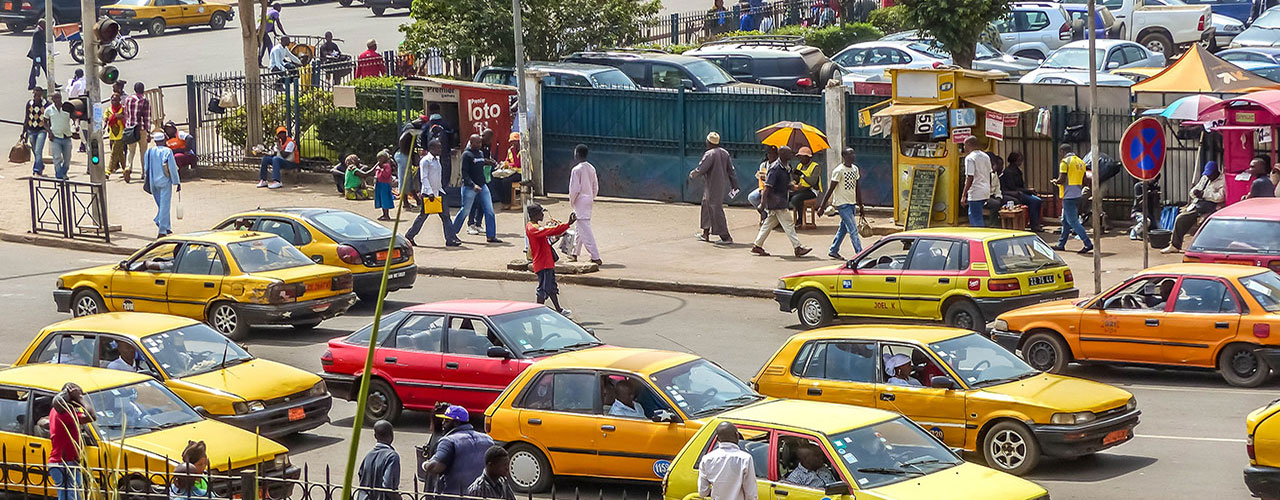
Road Transportation
**1. Road Network: Cameroon boasts an extensive road network that connects major cities, towns, and rural areas. The road conditions can vary significantly, from well-maintained highways to unpaved roads in more remote regions.
**2. Buses: Buses are a common mode of transportation for traveling between cities and towns. Several bus companies operate in Cameroon, offering different levels of comfort and service. It's advisable to book tickets in advance for long-distance journeys.
**3. Taxis: Taxis are readily available in cities like Douala and Yaoundé, serving as a convenient way to get around urban areas. Negotiate the fare with the driver before starting your journey, as taxis often do not have meters.
**4. Bush Taxis: For travel to more remote or rural areas, bush taxis are commonly used. These shared taxis can be a bit crowded, but they are a practical way to access regions with limited public transportation options.
**5. Self-Driving: Renting a car and self-driving is an option for those who prefer flexibility and independence. However, road conditions can vary, and it's essential to be cautious and prepared for different terrains.
Rail Transportation
**1. Rail Network: Cameroon has a rail network primarily operated by Camrail. The rail system connects major cities, including Douala, Yaoundé, and Bafoussam. Train travel offers a unique way to see the country's landscapes, but schedules can be irregular, so it's advisable to check in advance.
Air Transportation
**1. Airports: Cameroon has several airports, with the most significant ones in Douala and Yaoundé. These airports serve as primary entry points for international travelers. Additionally, domestic flights are available to connect you to different regions of the country.
**2. Domestic Flights: For long-distance travel within Cameroon, domestic flights are a convenient option. Airlines like Camair-Co and other carriers offer regular flights to various destinations, including Garoua, Maroua, and Bafoussam.
Water Transportation
**1. Waterways: With access to the Atlantic Ocean and several rivers, water transportation is essential in Cameroon. Ports like Douala serve as significant hubs for maritime trade and passenger transport. Additionally, some areas along the coast and rivers use boats and ferries for local transportation.
Motorcycle Taxis
**1. Motorcycle Taxis: In many urban and rural areas, motorcycle taxis, known as "bend-skin" or "okada," are a common mode of transportation. These are convenient for short trips or navigating through congested traffic, but it's crucial to wear helmets for safety.
Key Tips for Domestic Transportation:
- Advance Planning: For long-distance journeys and domestic flights, it's advisable to plan and book your tickets in advance, as availability can be limited, especially during peak travel seasons.
- Safety: While using taxis and other modes of transportation, prioritize safety. Choose registered and reputable service providers, and always use your seatbelt or helmet where applicable.
- Language: French and English are the official languages in Cameroon. Knowing some basic phrases in both languages can be helpful, especially when communicating with drivers and service providers.
- Local Customs: Be mindful of local customs and etiquettes, especially when using public transportation. Respect the cultural norms and be courteous to fellow passengers.
- Road Conditions: If you plan to self-drive or use road transportation, be prepared for varying road conditions. Carry essentials like spare tires, tools, and emergency supplies.
Cameroon's domestic transportation options are diverse and can cater to a range of travel preferences. Whether you prefer the convenience of flights, the adventure of road travel, or the unique experience of train journeys, there are options to explore this culturally rich and geographically diverse country.
Plan your transportation based on your itinerary and the regions you wish to discover, and you'll be well-equipped for an unforgettable journey through Cameroon.
Things to Do in Cameroon
Cameroon, often referred to as "Africa in Miniature" due to its diverse landscapes and rich cultural tapestry, offers travelers a wide range of unique experiences. Here are some compelling activities to enjoy in this fascinating country:
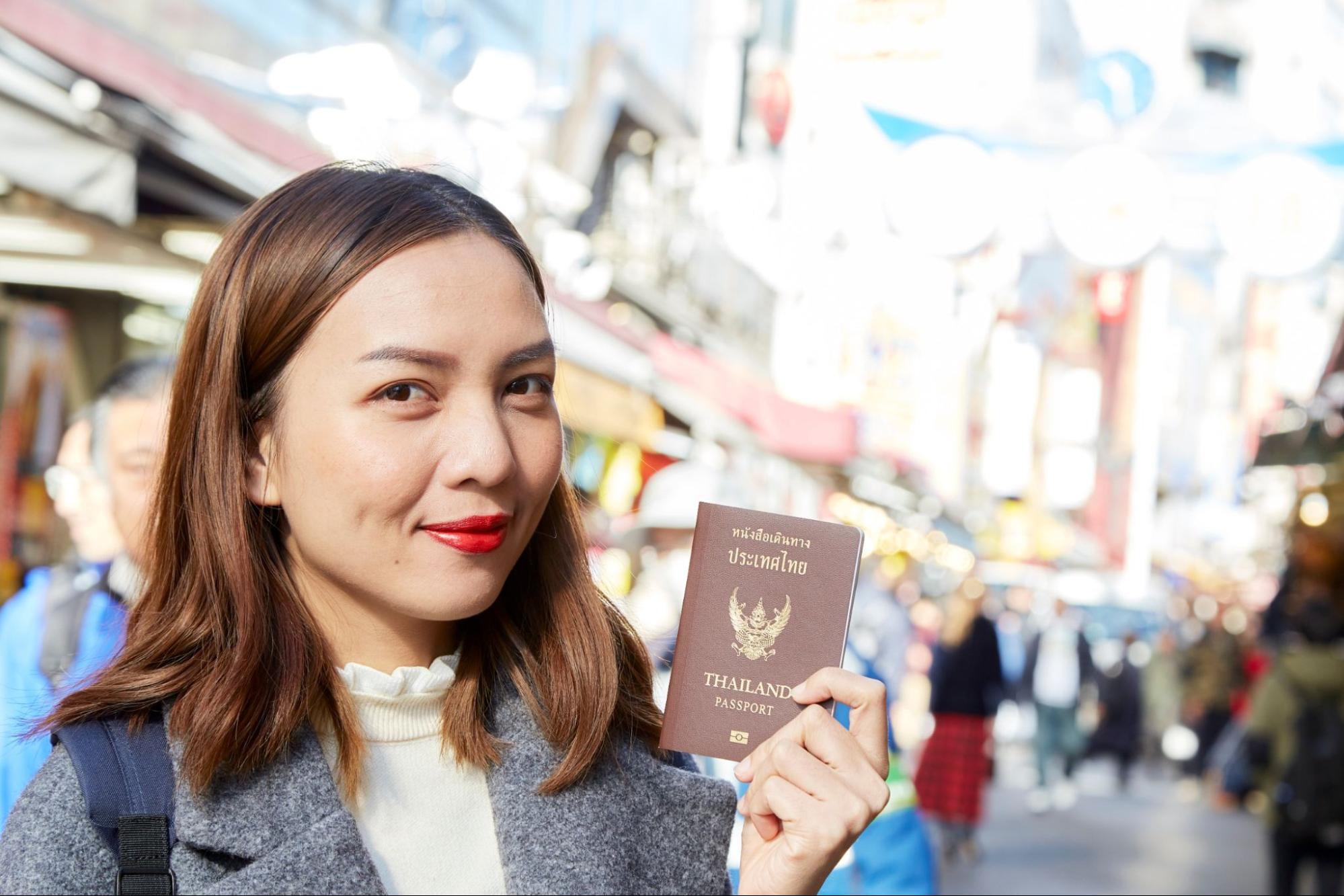
1. Visit Primate Sanctuaries
Cameroon is home to various primate species, including gorillas and chimpanzees. While encountering them in the wild is possible, the best way to observe these incredible creatures is by visiting sanctuaries. Two notable sanctuaries include:
- Limbé Wildlife Centre: This sanctuary is renowned for its efforts to rescue and rehabilitate primates, particularly gorillas and chimpanzees, from the bushmeat trade. It offers a safe and educational environment for these primates.
- Mfou Primate Sanctuary: Situated in Mefou National Park, Mfou Primate Sanctuary also provides a haven for rescued primates. Visitors can witness these animals in large enclosures while learning about their stories and conservation efforts.
2. Immerse Yourself in Tribal Cultures
Cameroon boasts an astonishing cultural diversity with over 250 distinct ethnic groups. To delve into this rich tapestry, embark on a journey along the Ring Road. Along this route, you can:
- Visit traditional villages: Explore the traditional villages that line the Ring Road, each offering unique customs and artistry.
- Engage with local artisans: Interact with skilled craftsmen and artisans who create intricate handmade products, from vibrant textiles to intricate wood carvings.
- Discover hidden gems: The Mandara Mountains in northern Cameroon are home to the Koma people, an enigmatic ethnic group. These people remained isolated from the outside world until the 1980s, making them one of the most captivating cultural encounters in the country.
3. Stay in a Hunter-Gatherer Village
For a truly authentic and immersive experience, consider staying in a hunter-gatherer village near locations like Kribi. Here, you can:
- Venture into the forest: Join the local villagers in activities such as honey collection, providing you with a deeper understanding of their traditional way of life.
- Experience marginalization: Many of these communities are marginalized and have limited integration into mainstream society. Despite their challenges, they are known for their friendliness and a welcoming spirit.
Things Not to Do in Cameroon
While enjoying your time in Cameroon, it's crucial to be aware of sensitive issues and practices that should be avoided:

1. Ignore the Plight of the Baka People
The Baka people, a Central African hunter-gatherer tribe, have been displaced from their ancestral forests due to conservation projects. To support their rights and wellbeing:
- Back organizations like Survival International that work to protect the rights of the Baka people.
- Avoid using the term 'pygmy' to describe these tribes, as it is considered derogatory. Instead, refer to them by their specific tribal names.
2. Avoid Supporting the Bushmeat Trade
While it's important to experience local cuisine, it's equally crucial to protect endangered species and avoid encouraging poaching. The bushmeat trade in Cameroon involves the sale of wildlife for consumption and souvenirs. To promote responsible travel:
- Refrain from consuming bushmeat, which may include animals like monkeys, pythons, porcupines, and pangolins.
- Avoid purchasing souvenirs made from animal parts.
3. Give Inappropriate Gifts to Traditional Communities
When visiting traditional communities, it's essential to be respectful and considerate. While some tour companies provide compensation, the gifts you provide should align with their traditional lifestyles. Here are some guidelines:
- Items like sugar and tea can be gifted to elders, who can distribute them among villagers.
- Cash, clothing, sweets, and pens may not be appropriate tokens and may influence the community in ways that don't align with their own traditions.
By following these suggestions, you can have a more meaningful and responsible travel experience in Cameroon, appreciating its cultural richness and natural beauty while respecting local customs and sensitivities.
Conclusion
Cameroon is a multifaceted destination that offers a wide range of experiences, from its lush rainforests and captivating wildlife to its colorful culture and rich artistic heritage. By carefully choosing the timing of your visit, understanding the climate, and following essential travel guidelines, you can have a memorable and safe journey in this "Africa in Miniature." While staying away from areas affected by border disputes and being vigilant in city areas, you're bound to have a fantastic time exploring this unique country.
FAQ
Q: Is Cameroon tourist friendly?
A: No, it is not advisable to travel to certain regions in Cameroon. The U.S. Department of State advises against traveling to the North, Far North, Northwest, and Southwest Regions, as well as parts of the East and Adamawa Regions due to issues such as crime, kidnapping, terrorism, armed violence, and civil unrest.
Q: Why should people visit Cameroon?
A: People should consider visiting Cameroon if they have a passion for ecology and wildlife. The country boasts over 900 species of birds and more than 300 species of animals, making it one of the richest countries in Africa in terms of biodiversity. Despite security concerns in some regions, Cameroon offers a wide range of attractions for those interested in nature and wildlife.
Q: Is Cameroon safe for Indian citizens?
A: Indian citizens should exercise a high degree of caution when traveling to Cameroon due to the threat of violent crime and the risk of civil unrest. The level of caution needed may vary by region.
Q: Do I need a visa to go to Cameroon?
A: Yes, you need a visa to travel to Cameroon. Regardless of your citizenship or purpose of travel, a valid passport, visa, and evidence of certain vaccinations are required for entry into Cameroon. This requirement includes U.S. citizens and individuals of Cameroonian descent.
Q: How many Indians live in Cameroon?
A: The Indian community in Cameroon consists of approximately 700-800 Indian expatriates. They are primarily engaged in trading and small businesses, with some professionals among them.
Applying for a Cameroon eVisa
- Step 1: Complete the online application form with your personal details and passport information.
- Step 2: Proceed to securely pay online using your credit card.
- Step 3: Check your email for payment confirmation and receipt of your Cameroon eVisa, which will be sent electronically.

